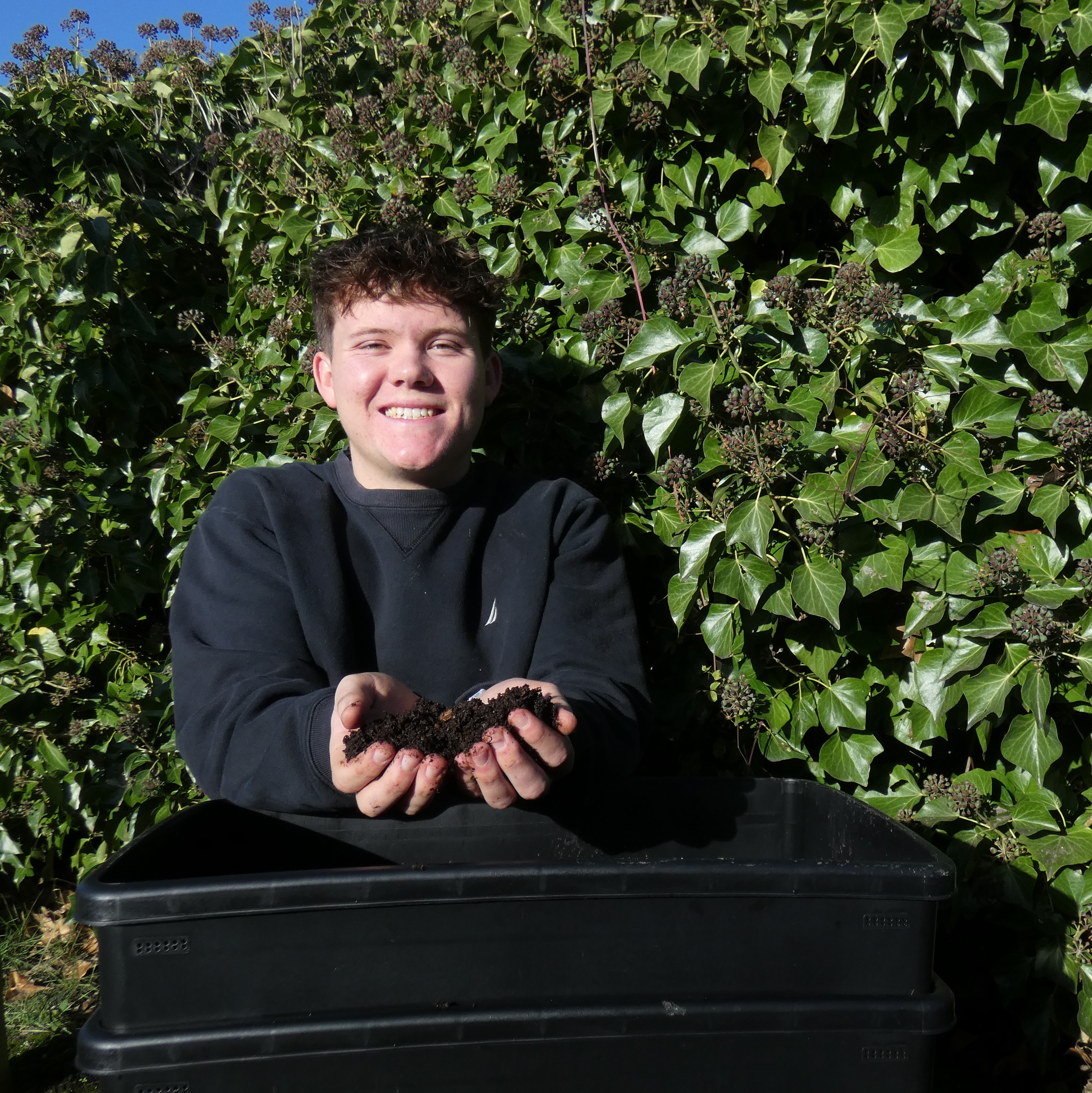
Worm firm . . . Squirm founder Cameron Brewitt is developing a communitybased app to encourage backyard composting. PHOTO: SIMON HENDERSON
Startup Dunedin’s Audacious programme highlights University of Otago and Otago Polytechnic students who are creating innovative business ideas.
This week in the series reporter Simon Henderson finds out how worms can make money and help the environment.
One worm farm can be a great way to recycle waste, but thousands of worm farms can be a money-making idea.
Squirm founder Cameron Brewitt has an audacious solution that utilises the power of the collective to find a better way to get rid of food waste.
His plan was to create a decentralised worm farm system, operated through an app.
People would be incentivised to operate worm farms by being paid for the compost generated.
Worm castings and worm ‘‘tea’’ — worm urine — were highly valued as well, Mr Brewitt said.
All this could be collected and packaged for sale to the public.
The University of Otago second year marketing and finance student noticed the amount of food waste when he was staying in a hall of residence last year. ‘‘It really bothered me.’’
His father had a worm farm, and that inspired Mr Brewitt to consider a better way to reduce waste.
The average household spent more than $700 a year on food that was thrown out, Mr Brewitt said.
‘‘We need to somehow create value out of something that is costing us money.’’
Individual worm farms might not have value, but if each was collected and packaged, it had a tangible value as compost.
Customers would pay for the worm farm components to begin with, but each time compost was collected they would be paid, meaning over time they would not only recoup the cost of the worm farm, they would also begin to generate income.
People could send a message using the app when compost was ready to be collected.
They could also make money as a compost collector, gathering from their local area and taking it to a central repository.
This could operate in a similar way to Lime e-scooter ‘‘juicers’’, a network of people who were paid to pick up and charge e-scooters overnight, Mr Brewitt said.
Mr Brewitt was at present trialling the concept with local households, and planned to sell the compost at farmers’ markets to begin with.
‘‘If you are going to throw food away, you might as well make something from it.’’













